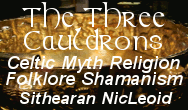Yoga Wicca Buddha
Exploring a personal, eclectic path by looking at the intersection of three great traditions.
Offer It Up
I stood on a subway platform as trains roared by, oblivious, paralyzed. I had been frozen by a brief, polite encounter with a former co-worker, a few weeks after I’d been laid off from my very first job, as a community college English teacher. My last set of students—young men in practical disciplines — had filled their evaluations with comments on my dress and appearance: “She should wear shorter skirts.” “She should wear more make-up.” It was decided my relationship with them had been “too personal", and my contract was not extended. Standing on the platform, remembering all this, a renewed sense of shame burned in my heart.
Over the years I would understand what happened better, with a more sophisticated eye. But at the time I was looking for emergency first aid. And I found it in the practice of “offering it up.”
The human urge to offer and to hope cannot be denied for long, even if it dwindles to the plink of a coin in a wishing well. In my own life I have made all kinds of offerings: candles lit, prayers made, symbolic objects burnt or buried with appropriate ceremony. I have offered things to God, and to gods, and to no one in particular. Often I wasn’t really sure why or what it meant. I just felt the need.
But my offering on the subway platform was of a different sort. At the time I was influenced by the Catholic idea that you could merge your suffering with Christ’s, and dedicate it to healing the world. So standing there, I allowed myself to feel the pain, connecting it that larger, holier suffering. I didn’t distract myself, or direct blame, I just felt the burning in my heart. The uncomfortable sense of shame gradually morphed into a kind of neutral wound, one that might even have some value.
I’ve since left Christianity behind, but “offering it up” still works for me. In Buddhist guise it is the idea of “staying with the suffering,” even suffering that is particularly hard to bear. Feeling like a failure, feeling unworthy—these are my personal nemeses, the kind of pain I’d do anything to avoid. But avoidance usually just leads to more pain: negative self-talk, futile busy-ness, drowning my sorrows in drink or losing myself in the screen. All these are what Buddha called “second arrows” that just increase the pain from the “first arrow”—the initial wound.
To truly “offer it up,” I have to feel that wound all the way down. I have to accept, rather than solve, the suffering. I have to release blame. Or, to put it another way, I have to give up the distraction of blaming myself (or others) and feel the grief in my body more than in my judging mind. I have to give up my pride, my sense of being in control. And having felt the pain, I have to let it matter and mean something, teach me whatever it’s meant to. I have to let it call up my compassion and enlarge it so that I feel a kinship with all who suffer.
I offer it up to something greater, to a broader and more perfect space of compassion, to the lap of the gods. I let it go—I don’t stop feeling it, but I stop holding on to it. I step back and let it shift and develop, stay or go, as the case may be.
And somewhere, somehow, the god who asked me to surrender to my pain is pleased with my sacrifice.
Comments
-
Please login first in order for you to submit comments





















loved that